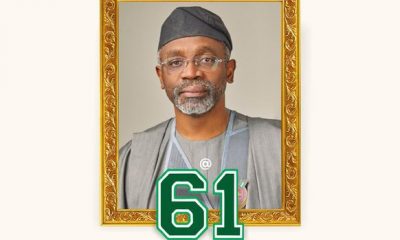A renowned human rights lawyer, Femi Falana SAN, on Wednesday berated the House of representatives of the Nigerian National Assembly over the controversial Infectious Diseases Control Bill being sponsored by the Speaker of the House of Representatives, Rt. Hon. Femi Gbajabiamila, and two other lawmakers. Falana declared the bill superfluous, illegal and unconstitutional.
Falana speaking on Channels Television programme – Politics Today -via Skype, monitored from Lagos, emphasized that the efforts to replace the Quarantine Act with the controversial bill by the House of Representatives is misleading, noting that the Nigeria Centre for Disease Control and Prevention Act of 2018 has already taken care of the intents of the controversial disease control bill being sponsored by the House of Representatives Speaker.
Falana had declared: “It is pertinent to inform Nigerians that in November 2018, a law was enacted in this country – the Nigeria Centre for Disease Control Act, NCDC Act – which has taken care of infectious diseases in the country.
“So, it is not correct, in fact, it is misleading on the part of the House of Representatives to say that it is amending the 1926 Quarantine Act because there is already a development between 1926 and now. You had the 2018 Act which has taken care of the entire provisions of the new bill.
“The new bill, as far as the law is concerned, is superfluous. Its provisions are largely illegal and unconstitutional.”
The control of infectious diseases bill 2020 has been controversial since its emergence in the House of Representatives. Critics have raised issues of breach of fundamental human rights of citizens, denial of property rights, arbitrary arrests and determination of guilt by the NCDC DG without recourse to the Court of law, devastation of federalism principles and distortion of devolution of powers between the federating units, among others.
The bill has continued to be unpopular across Nigeria.

 Health5 days ago
Health5 days ago
 Entertainment7 days ago
Entertainment7 days ago
 Crime6 days ago
Crime6 days ago
 Education1 week ago
Education1 week ago
 Health1 week ago
Health1 week ago
 Comments and Issues6 days ago
Comments and Issues6 days ago
 Football7 days ago
Football7 days ago
 Latest6 days ago
Latest6 days ago













